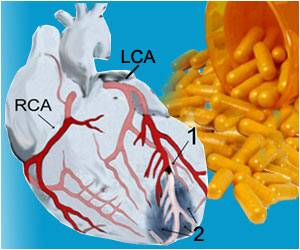About Stress Ulcers Stress ulcers are gastric mucosal erosions that occur in patients who have been severely injured or in those who have been seriously ill.
It occurs in the acid-secreting regions of the stomach (corpus and fundus), unlike in patients with peptic ulcers who develop erosions in the antrum or duodenum.
Stress ulcers and the associated bleeding can result in a notable degree of morbidity and mortality in those who are critically ill.
Stress Ulcer –Contributing Factors
Several factors contribute to the development of stress ulcer. They include -
• Change in the normal protective mechanisms
• Intestinal ischemia
• Myocardial infarction
• High dose corticosteroids
• Prolonged mechanical ventilation and coagulopathy (strong risk factors) in hospitalized patients
• Recent major surgery/ trauma, severe burn injury, hepatic, renal failure or multiple organ failure
• Sepsis
• Hypotension
Prophylactic Treatment
Prophylactic therapy, by itself, is incapable of reducing the overall mortality rate although it has been proven to be effective.
Of late there has been an overuse of acid-suppressive drugs (ASDs) and many patients have been prescribed these medications inappropriately.
Additionally, patients on proton-pump inhibitors (PPIs) two times a day to treat gastroesophageal reflux disease (GERD) are not given a reduced single-daily-dose once they are asymptomatic. This obviously can cause enough harm to the patient besides being a burden on the national exchequer.
In the ICU the ‘number needed to treat’ (NNT) to prevent a single episode of GI bleeding exceeds 900.The number is still not assessed for the non-ICU setting.
Side-effects
Not even doctors are very familiar with the side effects of PPI therapy. However studies have proved that some of the drugs included in this therapy have the following side effects –
• PPI and H2A therapy is strongly linked to Clostridium difficile infection (CDI). Use of ASDs is less common and modifiable risk factor for these types of infections.
• Hypomagnesemia (low levels of magnesium in blood)
• Vitamin B12 deficiency, particularly in older patients.
• Risk of upper respiratory infections such as hospital-acquired pneumonia (HAP) is high, as ASDs inhibit secretion of gastric acid, thereby allowing bacterial growth, which then gets carried to the lungs.
• Fractures of the hip, spine, and wrists
• Altered absorption of pH-dependent medications such as digoxin, nifedipine, midazolam, didanosine and aspirin.
Recommendations
The American Society of Health-System Pharmacists recommend prophylaxis only for ICU patients who are in the need of mechanical ventilation for more than 48 hours, have a history of GI bleeding or those who have coagulopathy.
The use of ASDs must be curtailed in non-ICU patients to prevent significant patient morbidity and reduce health care costs.
These medications must be used wisely, by weighing the risks and benefits before using them indiscriminately on those with gastric ulcer.
Pharmacists can help to stop the inappropriate use of ASDs by identifying patients who do not require them but who, nevertheless, are administered these drugs.
All these factors collectively can help to restrict ASD–related complications and help to limit morbidity associated with its use.
Reference -
Stress Ulcer Prophylaxis: The Consequences of Overuse and Misuse; US Pharmacist.com
http://www.uspharmacist.com/content/d/feature/i/1656/c/30500/
Source-Medindia















